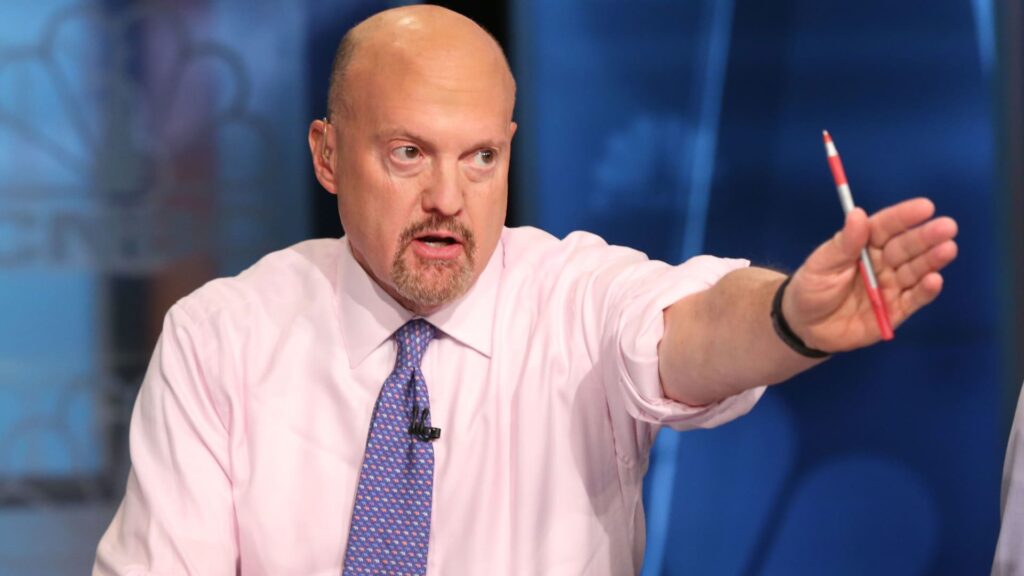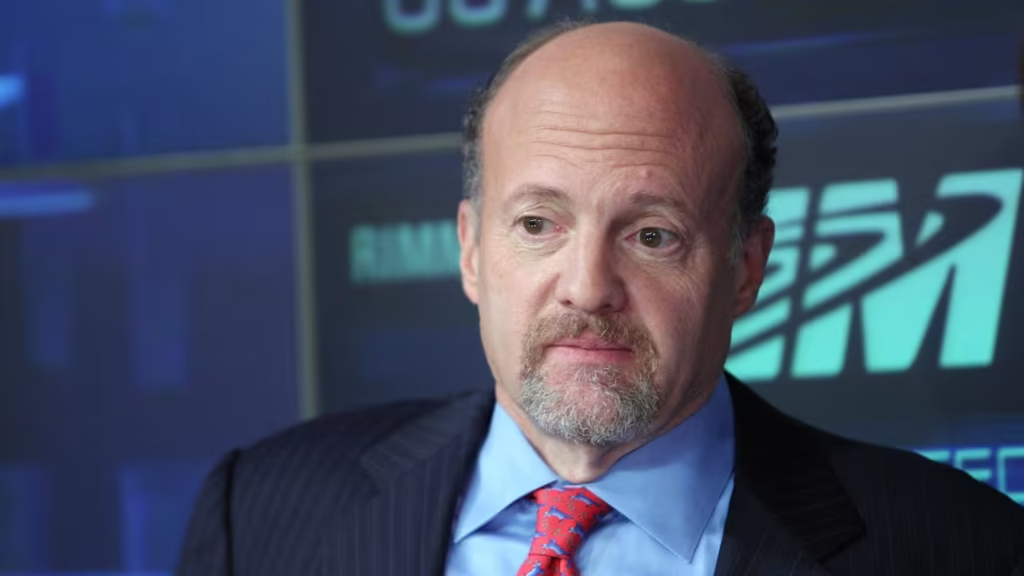Jim Cramer, the long-time host of CNBC’s Mad Money and a prominent voice on Wall Street, has publicly expressed deep regret over his previous support for former President Donald Trump’s tariff policies. In a candid conversation with CNN’s Erin Burnett, Cramer admitted he feels “like a sucker” for having believed in the administration’s promises on trade.
Once a Vocal Supporter of Tariffs
During Trump’s presidency, the former CNBC hedge fund manager aligned himself with the administration’s hardline stance on trade, especially the use of tariffs as leverage in negotiations with countries like China. At the time, Trump’s supporters—including Cramer—argued that tariffs were a necessary tool to correct trade imbalances and protect American manufacturing.
However, the reality of how the tariffs were implemented has since caused Cramer to reassess his position.
I feel like a sucker tonight because I am not a free trader and I do not believe in free trade, Cramer said during a segment on Erin Burnett OutFront on CNN.
Cramer emphasized that while he never supported unfettered free trade, he believed the Trump administration would apply tariffs fairly and strategically. Instead, he now says the policy lacked the calculated, reciprocal nature he expected.
“We Did It Stupidly”
Cramer’s main criticism centers on the execution of the tariff policies, which he claims were done without proper planning or economic foresight.
I thought we would do reciprocal tariffs,” Cramer explained. “If someone put a 10% tariff on us, we’d put 10% on them. But we did it stupidly.
The former hedge fund manager highlighted that the administration’s use of tariffs was more disruptive than strategic, hurting key American industries—particularly agriculture and manufacturing—while failing to produce meaningful changes in China’s trade behavior.
This isn’t a fringe viewpoint. Analysts across the political spectrum have noted that tariffs imposed between 2018 and 2020 led to retaliation from China, which directly impacted U.S. soybean and dairy exports. According to a 2021 report by the U.S. International Trade Commission (USITC), the tariffs cost U.S. companies billions in additional import duties and created uncertainty for businesses.
View USITC Report on Economic Impact of Section 301 Tariffs
The Promise vs. The Reality

Trump’s justification for the tariffs was rooted in a belief that China and other trading partners were taking advantage of the U.S. through unfair trade practices. By imposing duties on imported goods—particularly steel, aluminum, and various consumer products—Trump aimed to pressure other countries into trade deals more favorable to the U.S.
While some supporters claimed these tactics would revitalize American manufacturing, multiple studies suggest the opposite happened. A 2021 analysis by the Peterson Institute for International Economics (PIIE) found that manufacturing job growth slowed, and consumer prices increased due to higher import costs.
Read the PIIE Tariff Impact Report
Cramer’s Broader Critique of Protectionism
Cramer’s reversal on tariffs also reflects a broader disillusionment with economic nationalism. Though he maintains he’s not a fan of free trade, the veteran financial analyst now argues that protectionist policies must be implemented carefully—or risk doing more harm than good.
We were told this would be good for our workers, for our economy. Instead, it backfired. And I supported it. That’s on me, Cramer said during his CNN appearance.
His statements arrive amid renewed discussions about trade policy heading into the 2024 election season. With both Republican and Democratic candidates discussing how to balance globalization with domestic job growth, Cramer’s comments serve as a timely reminder of the complexities involved.
A Lesson in Economic Policy
Cramer’s admission also highlights the challenge political leaders face when mixing economic policy with populist messaging. While tariffs can be effective in certain contexts, experts generally agree they must be targeted, reciprocal, and paired with broader economic reforms to produce lasting results.
Government resources such as the Office of the United States Trade Representative (USTR) regularly publish data and analysis on ongoing trade negotiations and tariff schedules.
Visit USTR’s Tariff and Trade Page

Additionally, the U.S. Department of Commerce provides detailed guidance on how tariffs impact U.S. exports and global competitiveness.
Explore Commerce Department Trade Resources
Conclusion
Jim Cramer’s recent confession underscores the importance of accountability in public discourse—especially from influential figures in finance and media. His pivot on tariffs reveals not just a personal change of heart but a broader reckoning with policies that may have sounded appealing in theory but faltered in practice.
As the U.S. continues to navigate its role in the global economy, Cramer’s words will likely resonate with others who also believed in a vision that didn’t materialize as promised.

Vikas is a seasoned finance writer with a keen eye for unraveling complex global financial systems. From government benefits to energy rebates and recruitment trends, he empowers readers with actionable insights and clarity. When he’s not crafting impactful articles, you can find him sharing her expertise on Social Media. You can connect with him via email at [email protected].









